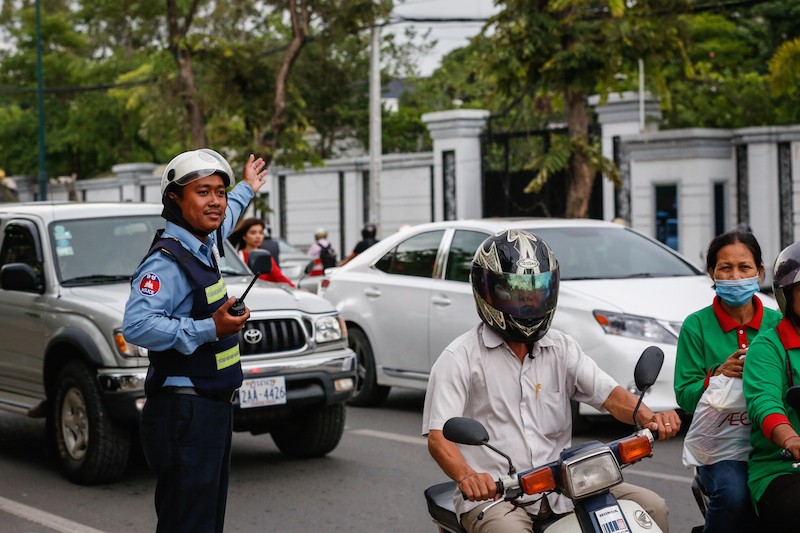The Council of Ministers last week approved amendments to the Traffic Law that include doing away with jail terms for people caught driving drunk, clearing their path to the rubber-stamping National Assembly, which opposition lawmakers are presently boycotting.
Council spokesman Phay Siphan said on Sunday that the body, which effectively serves as Prime Minister Hun Sen’s cabinet, approved amendments to eight articles of the law on Friday. He declined to discuss them, however, referring to a summary he posted to his Facebook page the same day.

The amendments would do away with the need for a driver’s license for anyone operating a motorbike with a 125cc engine or smaller. They would also eliminate the possibility of jail time for anyone caught driving drunk or driving without a license or license plate for the first time, leaving only a fine as a possible penalty. Those transferring ownership of a vehicle to someone else would also have unlimited time to complete the fines process instead of the current 90 days.
In his Facebook post, Mr. Siphan said doing away with jail for first-time drunk drivers and those driving without a license or license plate would increase fine collection and prevent a further burden on bulging court dockets.
“Imposing jail terms and fines is the job of the courts, so reducing the penalty to a fine will allow traffic police to impose fines on the spot for people committing those three offenses, which happen often,” he said. “This will allow for the Traffic Law to be enforced more effectively and dampen the growth of traffic cases in court.”
He added that jail terms, which currently range from one to six months, would still apply to those caught breaking any of the three rules more than once.
Drunk drivers currently face a fine of 800,000 to 4 million riel, or about $200 to $1,000. In February, however, a deputy director of the National Police’s public order department, Ty Long, said the new fine would amount to only about $100.
Contacted on Sunday, public order department director Run Rathveasna declined to discuss the proposed amendments in detail, but added that anyone driving drunk, even the first time, would still face jail sentences associated with related crimes.
“If a person driving under the influence of alcohol injures people, we will apply Article 83,” he said, which mandates a jail term of up to three years as well as other penalties, including a driving ban of up to five years.
Ear Chariya, who heads the Institute for Road Safety, said sending all first-time offenders to jail would be best and that changing the law to adapt to lawbreakers could further encourage dangerous driving.
“But it takes a very long time…to reform the justice system of the country, and at the moment instead of applying the law we have to be more practical,” he said. “It’s very rare that police send drunk drivers to court, and it would be practical to at least fine them.”
By replacing jail with fines, Mr. Chariya said, the CPP-led government was allowing politics to dictate policy at the expense of public safety.
“The government does not have enough courage to implement strong penalties…because a lot of people will go to jail, and if a lot of people go to jail the government will lose a lot of support,” he said.
“The government tries to find a way to balance their support and to implement the law.”
Only days after the new Traffic Law took effect on January 1, Mr. Hun Sen suspended a number of unpopular provisions in response to public criticism on Facebook.
(Additional reporting by Zsombor Peter)




